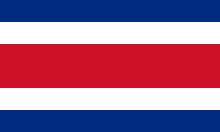OECD Guidelines for Multinational Enterprises
The OECD Guidelines for Multinational Enterprises are an annex to the OECD Declaration on International Investment and Multinational Enterprises. They are recommendations providing principles and standards for responsible business conduct for multinational corporations operating in or from countries adhering to the Declaration. The Guidelines are legally nonbinding, but the OECD Investment Committee and its Working Party on Responsible Business Conduct encourage implementation among adherents. Originally, the Declaration and the Guidelines were adopted by the NP in 1976. The Guidelines were subsequently revised in 1979, 1982, 1984, 1991, 2000 and 2011.[1]
Basic elements
The Guidelines cover business ethics on a range of issues, including:
- employment and industrial relations
- human rights
- environment
- information disclosure
- combating bribery
- consumer interests
- science and technology
- competition
- taxation
In addition, the OECD has developed specific guidance in a number of sectors to help enterprises implement the Guidelines and proactively identify risks of adverse impacts. These sectors include extractives, mineral supply chains, agricultural supply chains, garment supply chains, and the financial sector.[2] The work of the National Contact Points in support of this is called the "proactive agenda."[3]
Institutions
National Contact Points
According to the OECD Council decision each adhering country has to set up a National Contact Point (NCP), an entity responsible for the promotion of the Guidelines on a national level. It handles all enquiries and matters related to the Guidelines in that specific country, including investigating complaints (referred to as "specific instances"[4]) about a company operating in, or headquartered in that country. Some are based in a relevant government department; some are independent structures comprising government officials, trade unions, employers unions and sometimes non-governmental organisations. In order to improve their functioning and coherence across adherent countries, the NCPs established a peer review schedule in 2016 that plans 4-6 reviews annually.
OECD Investment Committee
The OECD Investment Committee is the primary body responsible for overseeing the functioning of the Guidelines and implementation of all OECD investment instruments. The Committee consists of member states' senior officials from treasuries, economics, trade and industry, and foreign affairs ministries and central banks. All OECD member states are members of the Investment Committee. Argentina and Brazil are observers and the 13 non-Members that have subscribed to the Declaration participate in the work of the Committee on issues related to the Guidelines. A Working Party on Responsible Business Conduct was established in 2013 as a subsidiary body of the Investment Committee to help implement the Guidelines and strengthen the system of National Contact Points.[5]
Advisory committees
Adhered countries

.svg.png)

.svg.png)

.svg.png)










































References
- "2011 Update of the OECD Guidelines for Multinational Enterprises - OECD".
- "Sectors - Organisation for Economic Co-operation and Development". mneguidelines.oecd.org. Retrieved 2017-09-30.
- "Guidelines for MNEs - Organisation for Economic Co-operation and Development". mneguidelines.oecd.org. Retrieved 2017-09-30.
- "Guidelines for MNEs - Organisation for Economic Co-operation and Development". mneguidelines.oecd.org. Retrieved 2017-09-30.
- "On-Line Guide to OECD Intergovernmental Activity". webnet.oecd.org. Retrieved 2017-09-30.